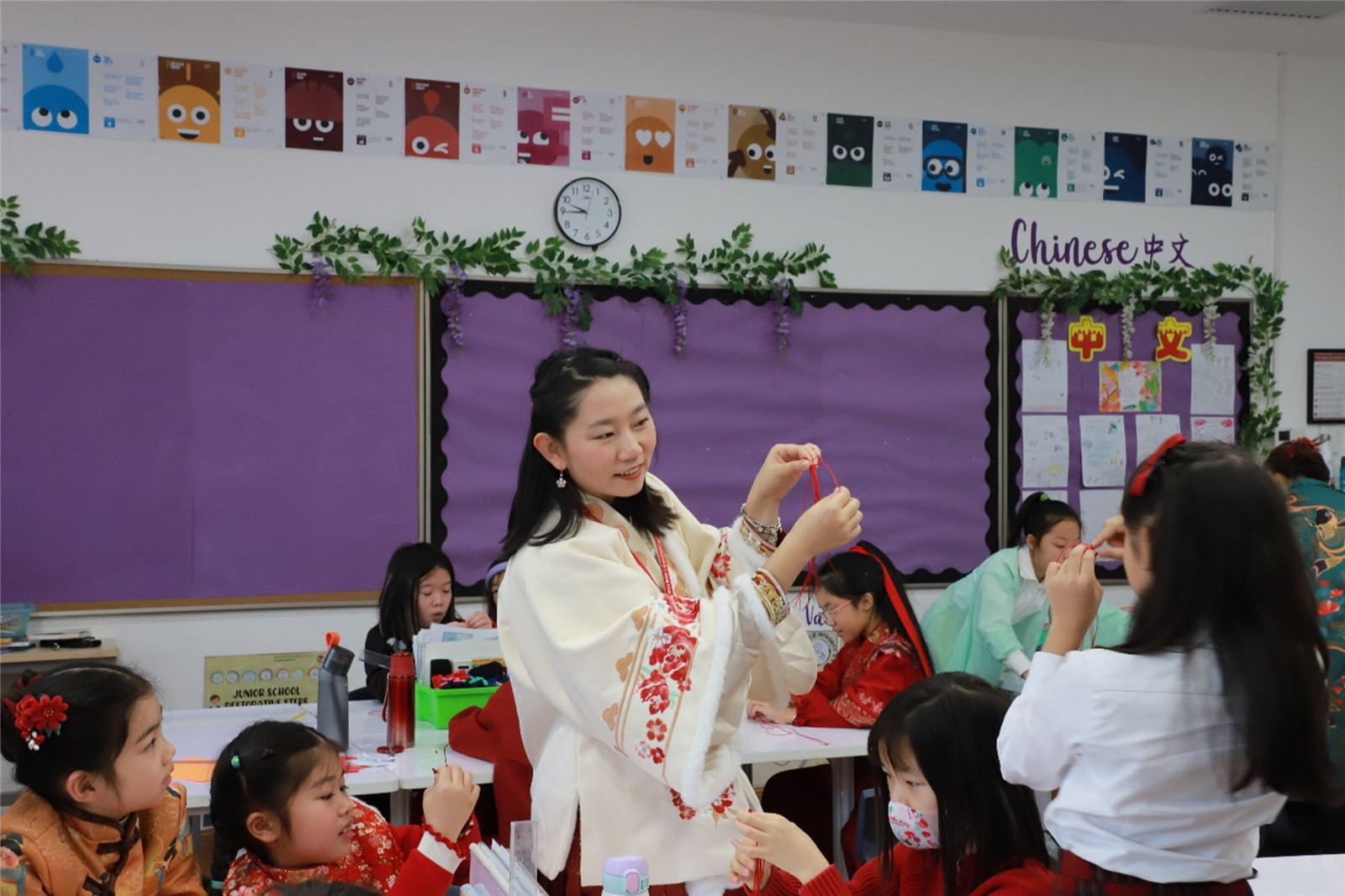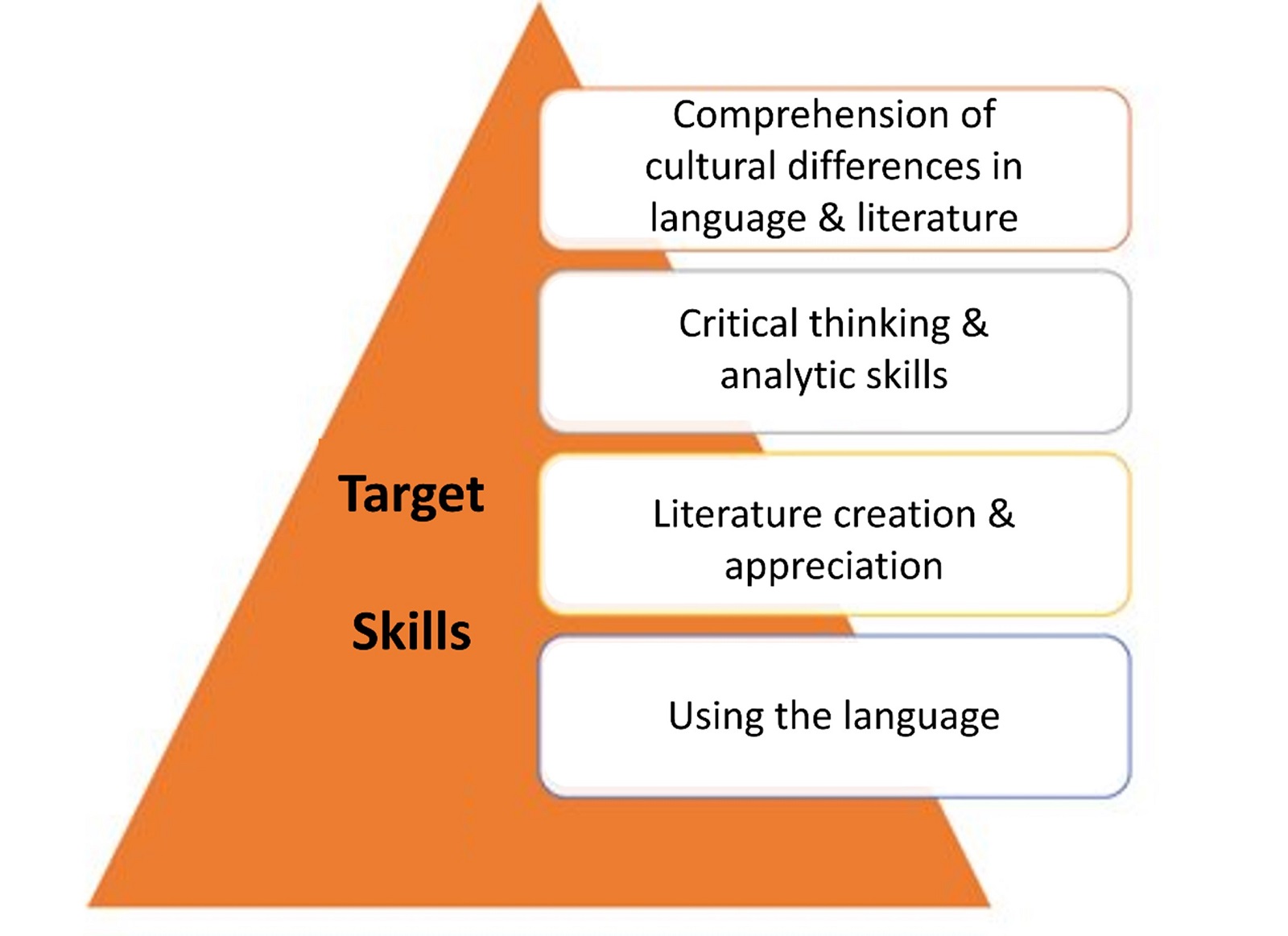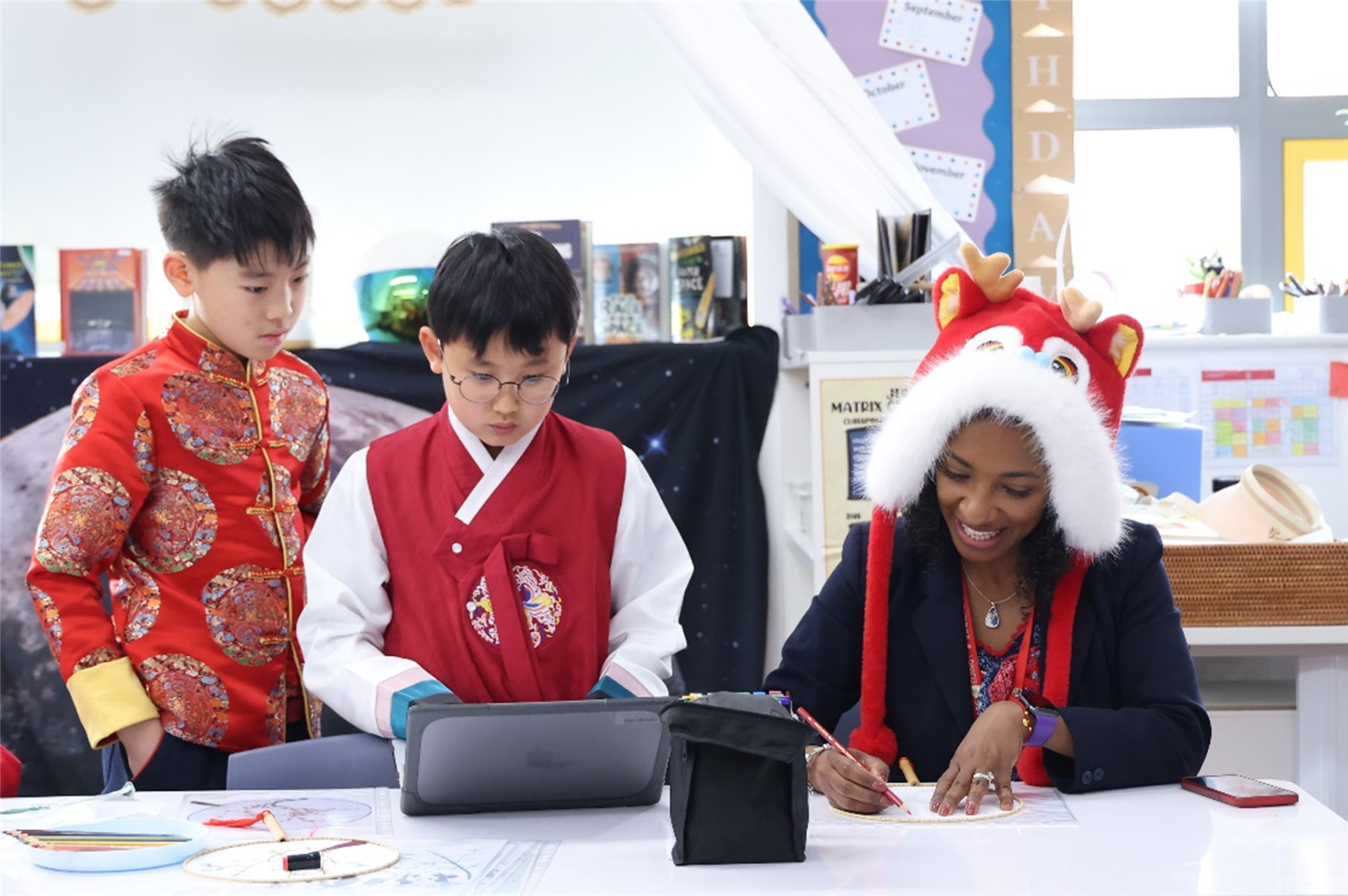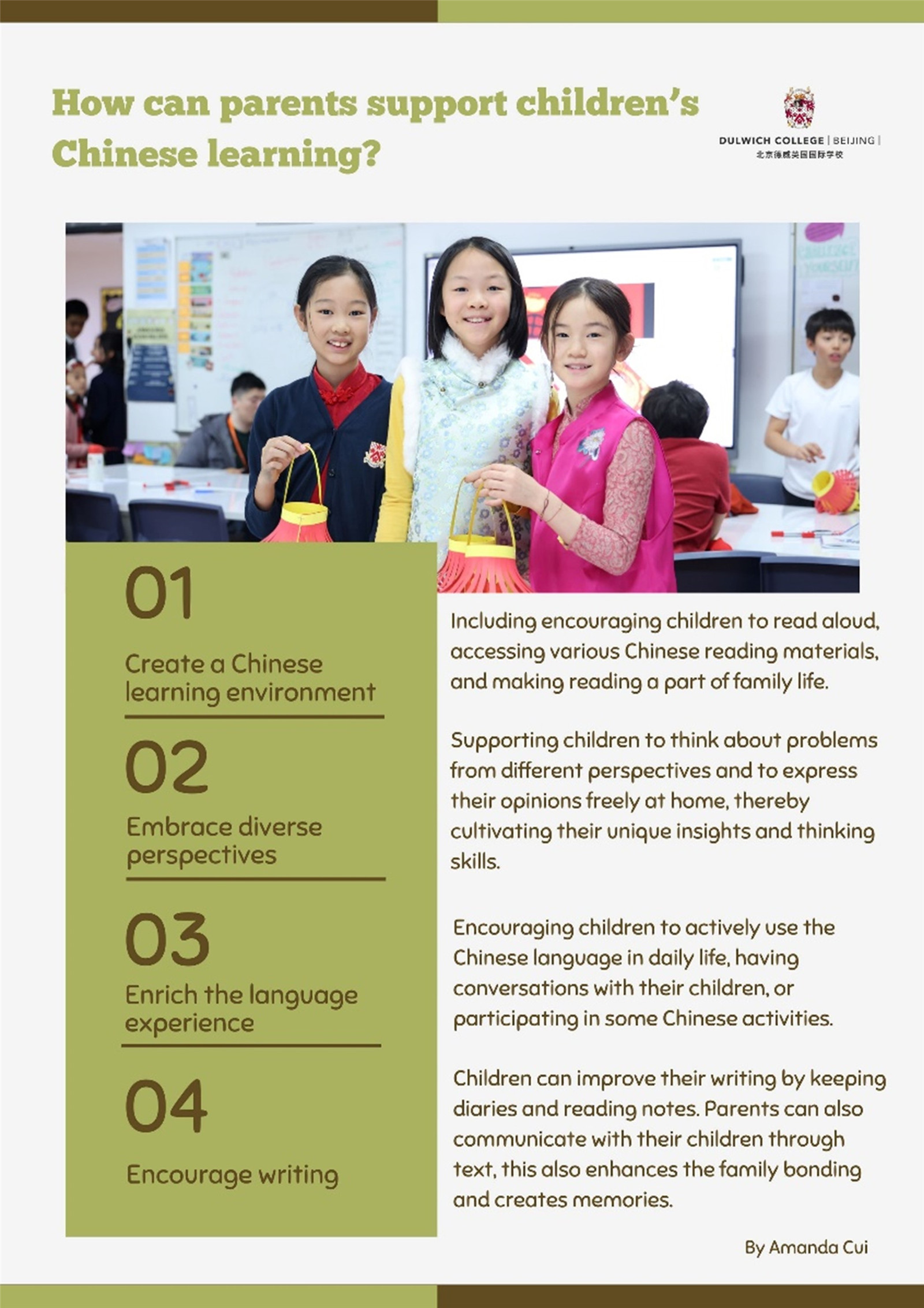Crafting a Cultural Legacy through Chinese Language Learning
At DCB, we believe in the transformative power of language and its role in creating a rich, multicultural community that fosters understanding, empathy, and collaboration among individuals from diverse backgrounds. Extensive research has underscored the many benefits multilingualism brings in various aspects of our lives, and our goal is to ensure that our students reap those advantages as well.
At Dulwich College Beijing, we champion a robust Mandarin programme across all our schools. As a community of over 30 nationalities, we aim to not only connect our students from diverse cultural and linguistic backgrounds with the local culture but also instill values of respect, open-mindedness and humility. By challenging our students to tackle Mandarin – a language that often tops the rankings for hardest languages to learn for English speakers – we aim to break down language and cultural barriers, fostering a more global mindset among our student community.
Last year, we featured Ms Lu Chen, our Head of Senior School Mandarin, who took us and our Junior School journalists Dulwich Dudes on a deep dive into what makes our Senior School Mandarin programme special. In this piece, we speak to Ms Amanda Cui, our Junior School Chinese Lead and an experienced teacher who has taught and lived in China, South Korea, the Philippines and the US, who shares more about the DCB Junior School Chinese Curriculum, how her team of eight is helping students develop cultural recognition and improve their language skills, and how, by confidently using the Chinese language, they can also take pride in the Chinese culture and become ambassadors for the cultural legacy.

As an integral component of the Junior School curriculum, our Chinese teaching adopts a cross-curricular approach, integrating different subject matters under an umbrella topic or area of interest and linking them to other courses such as English, mathematics, etcetera, ensuring that lessons are lively, inclusive, and insightful. Our eight Junior School Chinese teachers are proficient in Chinese language and literature, enriching this teaching approach with in-depth and unique insights. Each holds a Bachelor's Degree in the field, with two-thirds also possessing a Master's Degree, and have accumulated rich experiences either teaching overseas, in international education, or both.
Our Chinese teaching team employ a wide range of teaching tools and techniques to enhance students’ language skills and create a more comprehensive learning experience by encouraging them to participate in various cultural activities. This teaching method is tailored to meet the needs of students coming from diverse cultural and academic backgrounds. The team aims to stimulate and foster students' interest in language learning and provide them with effective support. As students gradually progress and achieve success, their motivation and self-confidence increase.
How our students learn
We cultivate our students' comprehensive language skills by integrating the four aspects of listening, speaking, reading and writing. We also value independent, cooperative, and inquiry-based learning methods and emphasise students' critical thinking and self-expression abilities so that students can be more creative and take ownership of their learning. In addition, we acknowledge that language learning and cultural experience are intertwined. Immersive cultural experience helps students understand and apply the language more comprehensively.
Here's an example of how we do it. Firstly, we choose diversified teaching material to ensure a wide range of learning content, including literary texts, applied texts and classical Chinese texts, to enrich students' knowledge. Secondly, we attach great importance to reading comprehension skills, especially understanding modern and classical Chinese texts, to review and answer questions. With a solid foundation of accumulated skills, we continue to cultivate students' critical thinking so they can extract information from reading and respond with their thoughts. Additionally, we attach great importance to students' writing skills, including argumentation, description and narrative writing.

Chinese Language Learning at DCB: How we “Make it Real”
At DCB, we believe that making learning real and being able to apply the language is essential to our students’ learning. We are always looking for opportunities to provide our students with real-world experiences to connect their learning with the world beyond the classroom. And because our Junior School students’ learning is broad and rigorous, it is especially critical that our students accumulate a solid foundation of basic Chinese skills within the time that we have with them. Our Junior School Chinese team makes full use of teaching time to ensure that every class is efficient and effective so that they get to the fun part: practising what they’ve learned. Through carefully designed after-school assignments, we give students the opportunity to apply what they have learned at home.
Teachers also provide students with learning guidance with care and responsibility to help them improve their Chinese proficiency in their spare time, thereby ensuring students' Chinese learning results. We also enhance students' language learning with various cultural activities, including the recent Chinese New Year activity week, where we held a series of activities and performances related to the annual festival, cultural lectures and workshops, and experiential activities. House activities are something I genuinely enjoy at DCB, and we also find ways to blend Chinese learning with House activities.

These cultural activities enrich students' extracurricular learning and enhance their learning experience. Through an immersive experience of the culture, students can better appreciate the charm of the traditions and learn to value the inheritance of cultural legacies. This helps cultivate students' mindset of inclusiveness, allowing them to respect and understand different perspectives to better adapt to a diverse environment.
We also hope to see students gain confidence in Chinese learning. With our support, students can be able and willing to use the Chinese language and bring the Chinese culture with them on their journey.
Beyond Junior School
Our teaching is aligned with the Chinese curriculum in Senior School to support our students’ growth and transition. We collaborate with Senior School teachers and understand the International Baccalaureate Curriculum (IB) requirements. We also receive group training to ensure our teaching is updated. We ensure that our students are well-prepared when they take on various challenges in Senior School and beyond.

Ms Jacinth Gurdon, our Head of Junior School, also shared that part of what makes Junior School Chinese learning effective is the opportunity for students to make their learning ‘real’ so that they not only have the skills to speak the language well, but the mindset to become better global citizens, commenting, "Students get to present their learning achievements through various on-campus and practical activities, which greatly help them make connections with real life. Such perspectives allow students to understand better our host country's culture and the mindset that will accompany them in their future journey as global citizens."
As I enjoy trying new things and embracing challenges, I highly appreciate how DCB is such a supportive community for students' development. Community members value academic rigour and are constantly driven to excel. Teachers here are encouraged to learn new things continually. We are equipped with tools and rooms for experimentation and challenges in our teaching. DCB community members are so positive, encouraging and resilient, allowing me to face challenges with a positive attitude and continue to learn and improve. The most rewarding thing for our team is seeing students progress in language learning and cultural recognition. When students apply their knowledge and skills in the real world with open-mindedness and confidence, we educators can only feel rewarded, proud and motivated.









